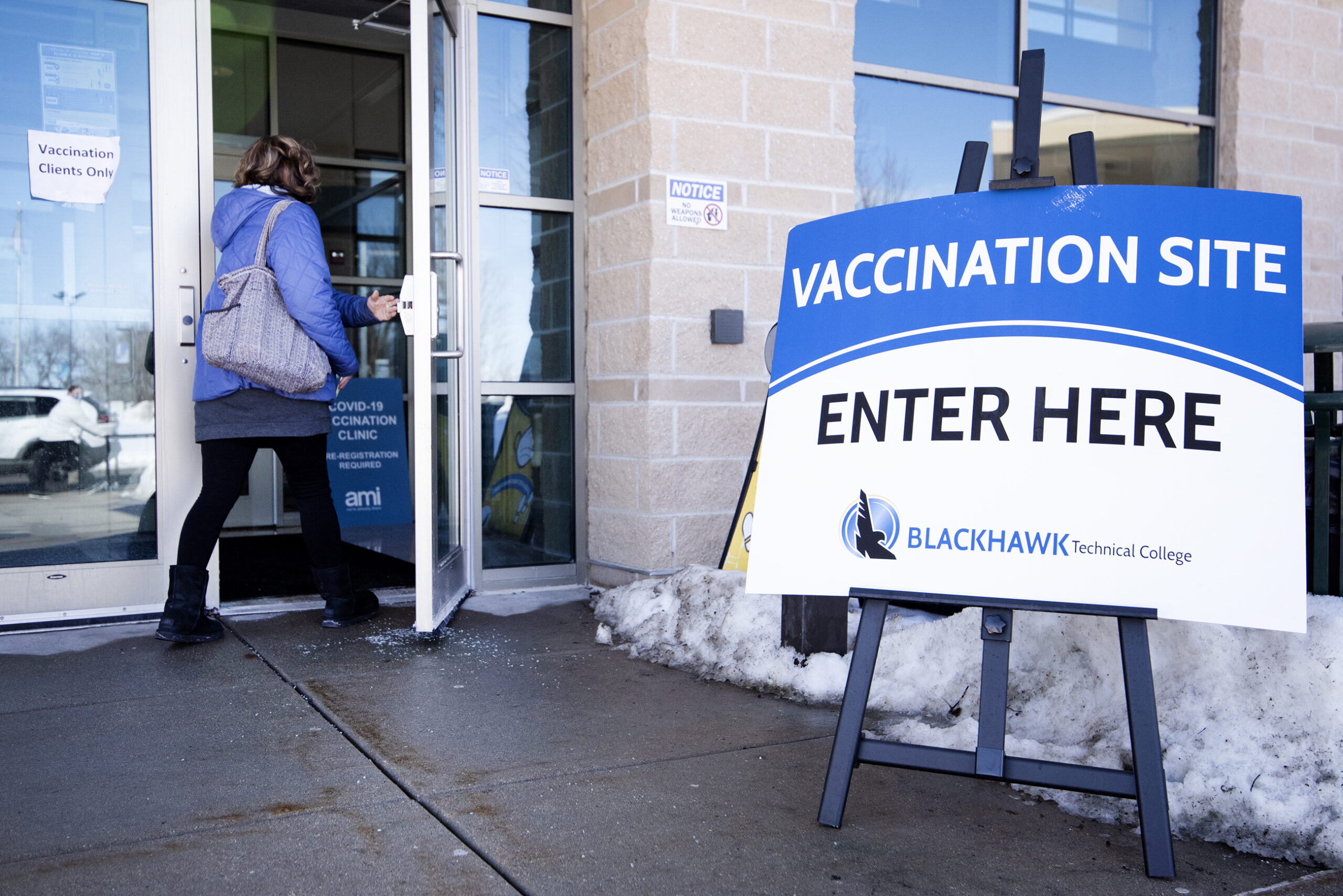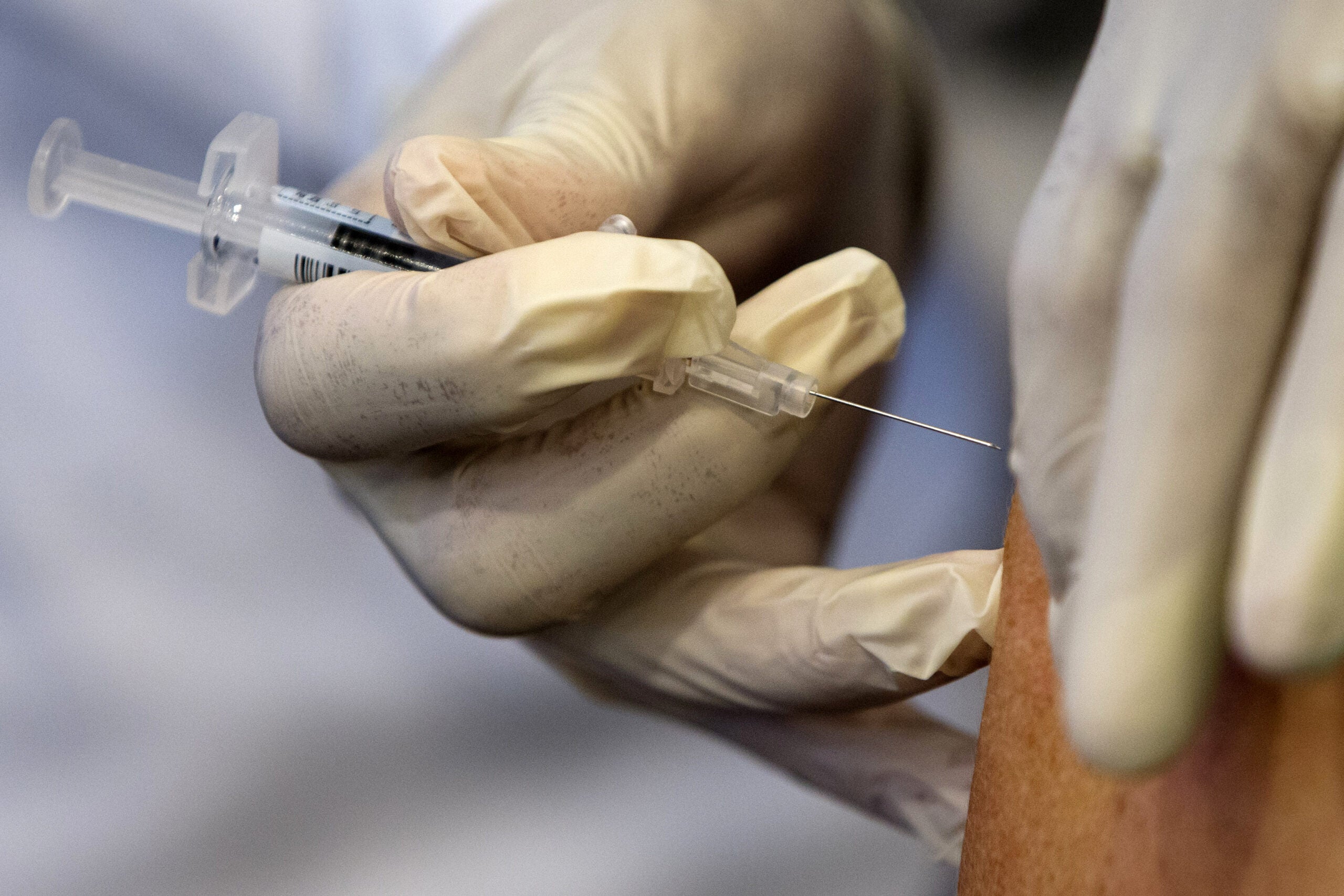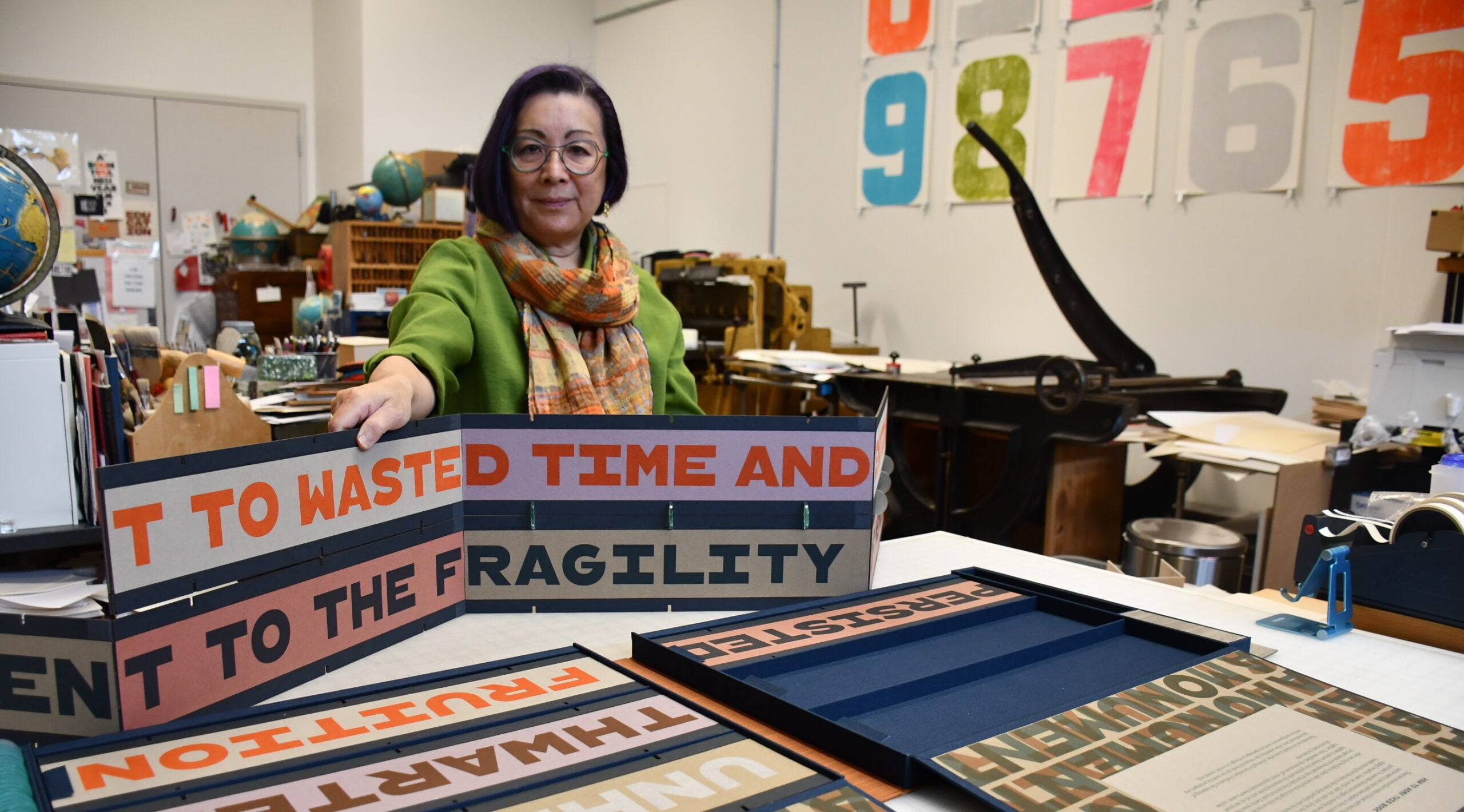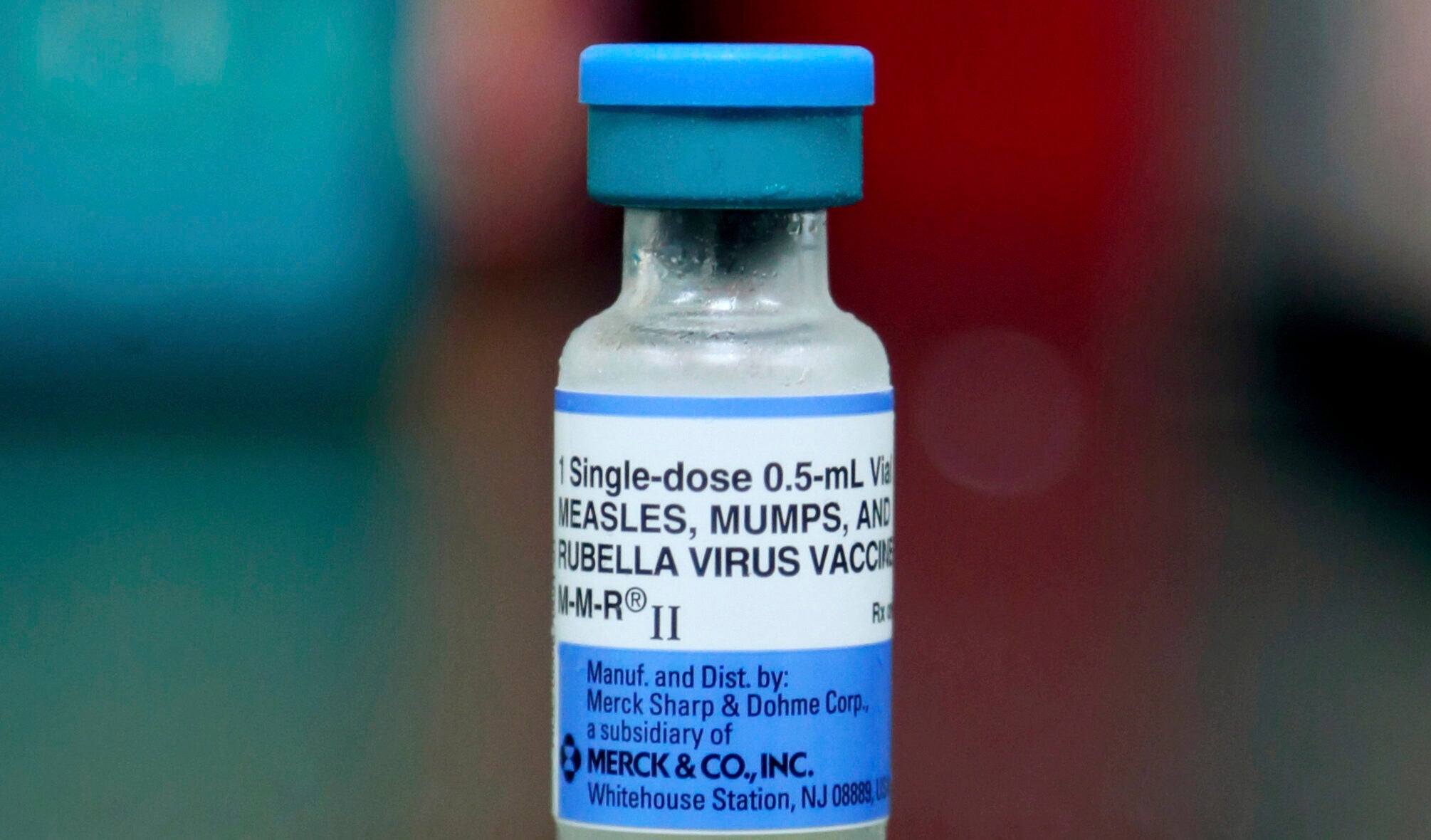Dixie Burbank got COVID-19 in December after she was exposed at her job. What started as a tickle in her throat ended up flattening her. She spent weeks in the hospital, and then on oxygen at home after she was released Dec. 22.
After that, she became one of the roughly one-third of patients for whom some symptoms of the disease don’t go away. For her, that has meant persistent fatigue, intermittent loss of taste and smell, and an odd numbness and tingling in her right hand.
In recent months, Burbank and thousands of other “long-haul” COVID-19 sufferers have been buoyed by early indications that getting vaccinated can trigger improvements in their conditions. Researchers say it’s too soon to draw any firm conclusions, and early surveys suggest only some people with post-acute COVID-19 syndrome see improvement after vaccination.
News with a little more humanity
WPR’s “Wisconsin Today” newsletter keeps you connected to the state you love without feeling overwhelmed. No paywall. No agenda. No corporate filter.
Still, after months of frustration and confusion around the new chronic condition, many who deal with it are finding hope that vaccines can be the beginning of the end of their long hauls.
“I’m hoping maybe it will just finally subside and go away,” Burbank, 61, of Lodi, said in an interview last month, the day after she got her second vaccine dose.
Long-haul COVID can take many forms. Some people experience “brain fog” or depression; in extreme cases previously stable patients even had paranoia or psychosis. Many patients report a persistent loss of smell and taste as well as tachycardia, or a sudden racing heart rate. Fatigue and gastrointestinal distress are other common symptoms.
COVID-19 was a new and little-understood disease for much of 2020; it wasn’t until months into the pandemic that post-acute COVID-19 syndrome was named or recognized by doctors. Its causes still aren’t fully understood, and neither are the reasons vaccinations appear to help some people and not others. A researcher at Yale found as many as 40 percent of those who get the vaccine report an improvement in their symptoms. Unfortunately, she also found up to 15 percent say they feel worse after vaccination — and the rest report no noticeable change. Research into vaccines’ effects on long-haulers is ongoing.
Jalaine Britton, 56, of Wisconsin Rapids, said she and her 19-year-old daughter got vaccinated together last month. Britton had been experiencing lingering symptoms since her family got sick in January. She’s part of the group whose symptoms improved.
“My smell has been 100 percent better” since she got vaccinated, Britton said. “I can smell it when my husband puts his cologne on.”
[[{“fid”:”1472916″,”view_mode”:”full_width”,”fields”:{“format”:”full_width”,”alignment”:””,”field_image_caption[und][0][value]”:”%3Cp%3EIn%20this%20March%205%2C%202021%2C%20file%20photo%20a%20sign%20outside%20a%20pharmacy%20in%20Steelton%2C%20Pa.%2C%20announces%20a%20drive-thru%20administering%20COVID-19%20vaccinations.%20%3Cem%3EMatt%20Rourke%2FAP%20Photo%3C%2Fem%3E%3C%2Fp%3E%0A”,”field_image_caption[und][0][format]”:”full_html”,”field_file_image_alt_text[und][0][value]”:”A sign with text about drive-thru vaccinations”,”field_file_image_title_text[und][0][value]”:”A sign with text about drive-thru vaccinations”},”type”:”media”,”field_deltas”:{“2”:{“format”:”full_width”,”alignment”:””,”field_image_caption[und][0][value]”:”%3Cp%3EIn%20this%20March%205%2C%202021%2C%20file%20photo%20a%20sign%20outside%20a%20pharmacy%20in%20Steelton%2C%20Pa.%2C%20announces%20a%20drive-thru%20administering%20COVID-19%20vaccinations.%20%3Cem%3EMatt%20Rourke%2FAP%20Photo%3C%2Fem%3E%3C%2Fp%3E%0A”,”field_image_caption[und][0][format]”:”full_html”,”field_file_image_alt_text[und][0][value]”:”A sign with text about drive-thru vaccinations”,”field_file_image_title_text[und][0][value]”:”A sign with text about drive-thru vaccinations”}},”link_text”:false,”attributes”:{“alt”:”A sign with text about drive-thru vaccinations”,”title”:”A sign with text about drive-thru vaccinations”,”class”:”media-element file-full-width”,”data-delta”:”2″}}]]
Some With Chronic Symptoms See Hope They Can Put Pandemic Behind Them
Kate Giblin had COVID-19 in December, and in January she was treated with monoclonal antibodies. That meant she had to wait 90 days before she could get vaccinated. She got her second shot in late April.
“I’m really sick of this pandemic,” said Giblin, 44, of Stevens Point.
Giblin already had one chronic condition, diabetes, before she became afflicted with post-acute COVID-19 syndrome. She works with older adults and adults with disabilities in Portage County, and her husband is a firefighter. They both continued to go to work through the pandemic, and she said she spent all of 2020 “just stressed out all the time” because she knew, with her pre-existing condition, that catching COVID-19 would likely be serious for her. It was.
“I was very, very, very sick with COVID-19,” Giblin said. “I had a fever for 20 days. I had a cough for over a month. I was sicker than I’ve ever been in my entire life.”
For Giblin, the lingering symptoms have been headaches, facial flushing, fatigue and a cough. As vaccinations became more widespread earlier this year, she started to see reports that some long-haulers were seeing improvements.
“Some of these cursory reports were saying maybe one-third (improved),” she said. “I’ll take a one-in-three chance that it might help along the way.”
Giblin’s 17-year-old daughter was nowhere near as sick as Giblin was when the illness moved through her family. But her daughter did experience the persistent loss of taste and smell.
“Maybe a week after her first vaccine, she said, ‘Mom, I can smell your coffee,’” Giblin said. She’s continued to improve in the weeks since.
Giblin has had less of the skin flushing as well, and her headaches have been less severe.
“I’m hoping … we’ll be able to really put this behind us,” she said. “And I am just so relieved to have the stronger protection that vaccines provide above natural immunity.”
Not All Long-Haulers Are Opting For Vaccine, And Some Who Do See Little Change
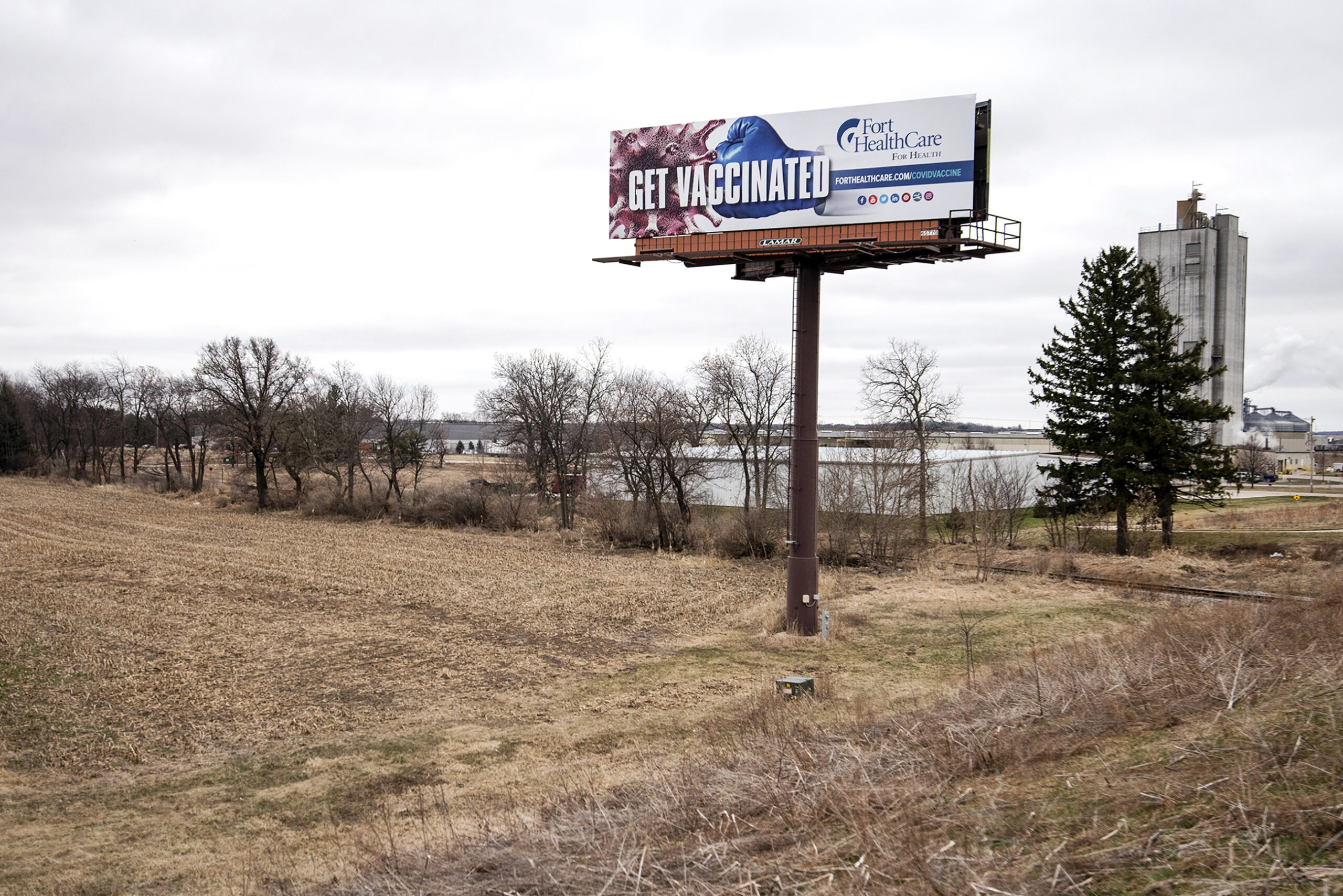
Long-haulers have banded together in online groups and new initiatives such as Survivor Corps and the Patient-Led Research Collaborative.
Jeanette Deschene, 35, of Manitowoc, started the Facebook group Wisconsin COVID Long Haulers in July to try to connect with others like her and to create advocacy around the disease. Deschene, who said she still has a fever “almost every day” and experiences heart rate fluctuations and fatigue, said it was a relief to find there were others experiencing similar effects. The group has nearly 2,000 members now.
Deschene is hesitant about getting vaccinated, though she says it’s something she’s keeping an eye on. She’s worried about reports that some people see their long-haul symptoms get worse after vaccination, and said she’s focused on managing her own day-to-day symptoms.
The day before she spoke to WPR, she fainted on her way into Kwik Trip, nearly hitting her head on the firewood.
Even for those whose symptoms improve after they are vaccinated, the improvements may be incremental. And not everyone improves.
On the day after she got her second dose, Burbank, said she had a tingling in her arm that made her hopeful that the numbness in her hand might go away. About two weeks later, though, she said she hadn’t seen much of an effect on her symptoms one way or another.
She still says she’s unequivocally glad she got vaccinated. For months, she’s been living apart from her husband, who was recovering from a stroke and couldn’t risk being exposed to the virus. Even if it hasn’t eased her long-haul symptoms, she said, getting vaccinated has certainly eased her mind.
“I cannot get exposed to a variant and catch this again,” she said. “My lungs can’t handle it. And psychologically, I don’t want to handle it.”
Wisconsin Public Radio, © Copyright 2026, Board of Regents of the University of Wisconsin System and Wisconsin Educational Communications Board.
